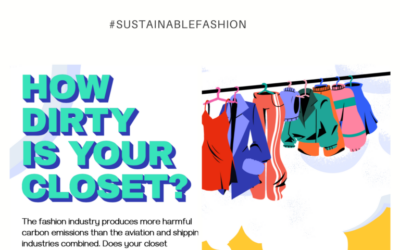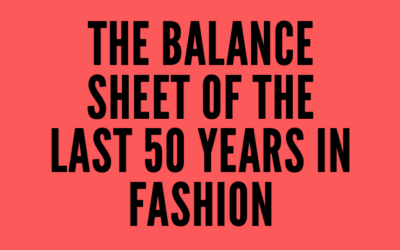Providing information about how much carbon is contained in a garment, can enhance our understanding of what a carbon footprint encompasses and how it affects the vitality of our planet.
Garments have labels for its composition and where it was made, so it seems right to provide information as well on its carbon footprint.
A global survey of 10,000 consumers has shown universal support for details on a product’s carbon footprint to be included on labelling, according to new research from the Carbon Trust. 
The 2020 YouGov survey, commissioned by the Carbon Trust, survey 10,000 consumers across France, Germany, Italy, the Netherlands, Spain, Sweden, the UK and the US. It found that more than two-thirds (67%) of consumers would support the introduction of carbon labelling on products.
For the UK, 63% agreed with the notion of adding a carbon label, while 51% admitted that they didn’t think about the carbon footprint of products when shopping.
The sustained and high levels of consumer support for carbon labelling suggests that passing this information on to increasingly well-informed and climate-conscious consumers can also enhance a company’s reputation and market share.
Allbirds announced that they will become the first fashion brand to label every product they make with a carbon footprint.
So going forward, Allbirds will be tallying all its greenhouse gas emissions when measuring the environmental impact of all its products. According to the company, the average carbon footprint across all its products is 7.6 kg, compared to the industry average carbon footprint for a sneaker at 12.5 kg. For context, the carbon footprint of a plastic bag is around 1.6 kg, a pair of jeans is around 29.6 kg, and bicycles are around 240 kg.
We have a plan to eliminate our products’ carbon footprint, and it’s already in action. First, we measure the emissions of everything from their raw materials to their end of life. Next, we reduce our impact by incorporating things like natural and recycled materials. And finally, we offset the little bit that’s left with carbon offsets, making Allbirds a completely carbon neutral business. But our goal is bigger—emit no carbon in the first place. We can create a sustainable future, but only if we hold each other accountable.
The brand is hoping the launch of its Carbon Footprint labelling will not only catalyze the sustainable fashion industry’s commitment to lower carbon emissions but inspire carbon transparency.
Allbirds’ co-CEO Joey Zwillinger said: “At Allbirds, we believe that climate change is the most important challenge of our time. Given that human-made greenhouse gas emissions are rapidly warming our planet, we’ve prioritized carbon dioxide reduction as the most important metric for our business.”
He believes customers deserve to know how their purchases impact the environment. “In our journey to climate positivity, we must hold ourselves accountable and we hope other businesses will feel inspired to follow in our footsteps,” he said. “There’s strength in numbers and we hope that if other brands start labelling their products, carbon footprint labels will be as widespread as nutritional stickers on food packaging.”
Since the UK Government introduced its 2050 net-zero target, however – and with citizen climate activism growing exponentially over the past 12 months – policymakers and businesses alike are beginning to re-float the carbon labelling discussion.
Late last year, Nestle and Premier Foods both revealed that they are considering adding carbon labelling to their products. Premier Foods targeting a 55% absolute footprint reduction by 2025 against a 2018 baseline, and Nestle aiming for net-zero on a global basis by 2050 – and claim labelling could help engage customers with their efforts.
Counting Carbon and not Calories is about wearing your value!




0 Comments